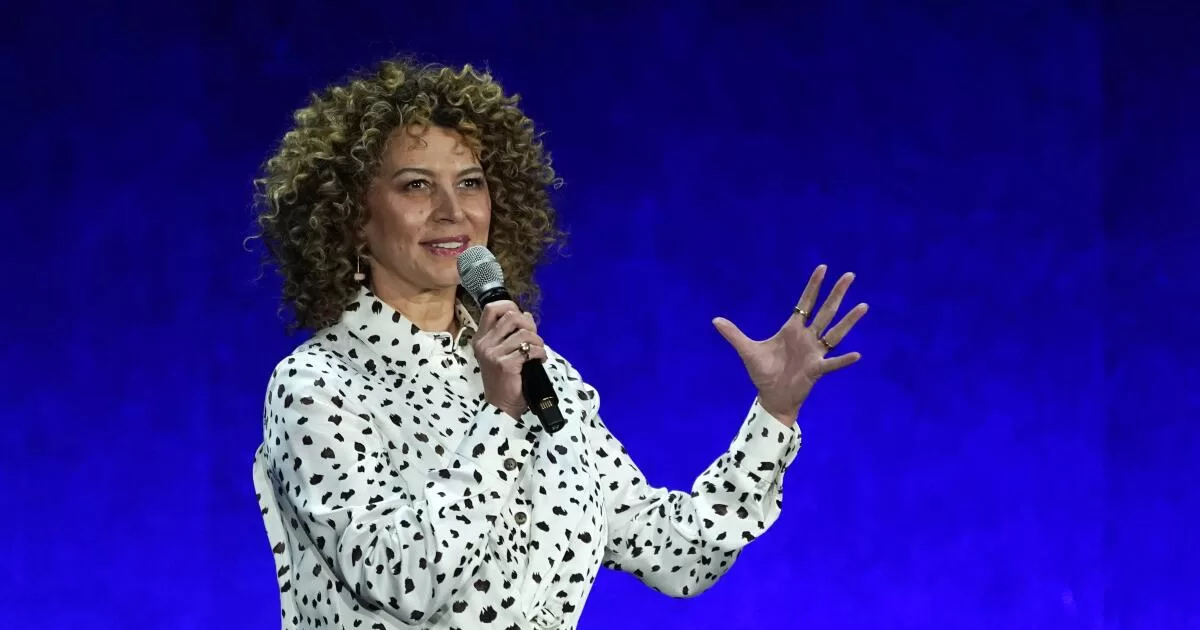During a wide-ranging, on-stage conversation at the UCLA Entertainment Symposium, the media chief emphasized that first, “the labor piece of it has to be right,” a proclamation that was met with applause from the audience.
“Nor should we infringe on people’s rights,” she said, adding that there also needs to be “very good, clever, sophisticated copyright laws around our IP.”
But once those issues are adequately handled, filmmakers and content partners also need “creative freedom to be able to use technology,” Langley said. She described AI as like any other technological innovation the film industry has encountered throughout its history and said she was interested in anything that can “evolve creativity.”
“As an industry and as a company, we’re better off embracing it and adhering to those pillars … than pretending it’s not here,” she said. “I think it’s exciting. It should be exciting. But we’ve got to get the ethics of it right.”
Langley and Universal Pictures are coming off a big year last year with “Oppenheimer,” which grossed $975 million in global box office revenue and won a slew of Oscars, including best picture.
Langley isn’t the first studio mogul to comment on AI and its role in the entertainment industry. Last month, Sony Pictures Entertainment Chief Executive Tony Vinciquerra told analysts and investors that AI would save the studio money in production.
AI has emerged as a major issue in Hollywood, as technology companies have increasingly courted studios and industry players. But it is a delicate dance, as entertainment industry executives want to avoid offending actors, writers and other workers who view the technology as a threat to their jobs.
The fast-rising technology was a key issue in last year’s dual labor strikes. The respective agreements struck by the Writers Guild of America and the Screen Actors Guild-American Federation of Television and Radio Artists included some AI protections, including a provision that actors must be asked permission and compensated for the use of their digital likenesses.
